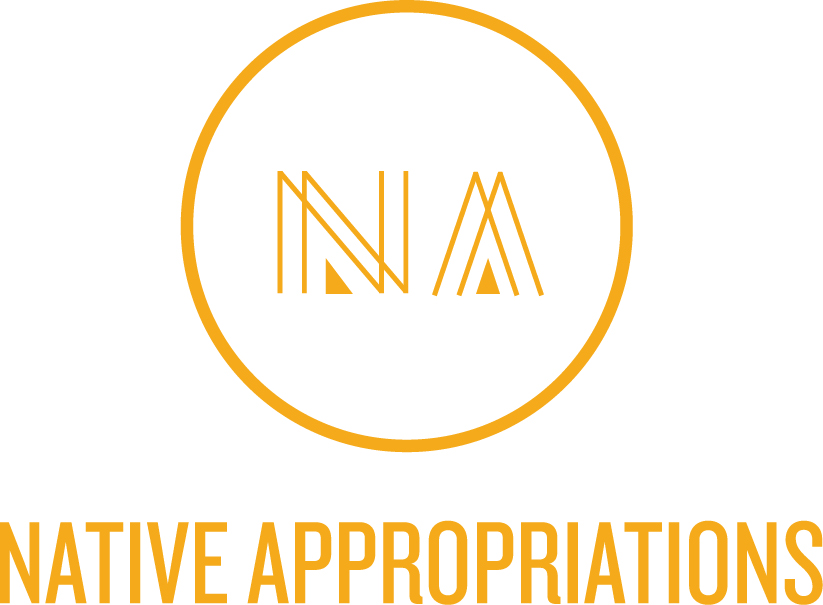Last Friday I headed over to the Harvard Med School (HMS) to listen to the final presentations of the students involved in HMS’s Native American High School Summer Program. I was so blown away and impressed by the students and what they managed to accomplish in three weeks, their presentations were incredible, powerful, and moving.
But back to the issue at hand, the image above. I was waiting for my flatbread pizza in the schmancy new HMS cafeteria and noticed this sign next to the ordering station. Text reads:
There are only three fruits native to North America: blueberries, cranberries, and Concord grapes. Legend has it that Native Americans gave blueberries to the new settlers, helping them make it through their first winter.
Not completely outright offensive, but I still find it troublesome. The main issues I find with the ad:
- The use of the phrase “legend has it…”, which implies a mystical or mythical connection, not a historical fact. It could have easily said “historical accounts tell us” or omitted the phrase all together. To me, “legend has it…” draws up imagery of campfire story time, furthering the stereotypes of Natives as connected to myth or the mystical.
- The use of generic “Native American” instead of an actual tribe. I’ve said it once, I’ll say it again and again until it gets into everyone’s head–there are over 500 distinct tribes and communities. Not every tribe saved the settlers’ butts that first winter. Not every tribe used/uses blueberries traditionally.
- The fact that they chose a “fact” that relates Natives to the white settlers, rather than the numerous other connections New England area tribes have with blueberries. How about mentioning that local tribes (like Wampanoag) have used and been aware of the medicinal properties of blueberries long before America caught onto the “antioxidant” trend? Why does it have to be viewed through a colonial lens?
The best part of all of this, guess who was in the cafeteria with me while I discovered the ad? about ten Wampanoag tribal members (from both Aquinnah and Mashpee), as well as all the other Native participants in the summer program. I pointed out the ad to one of the Wampanoag mentors, who was holding her beautiful baby boy (who’s name means “brave” in their language), and she just shook her head and walked away.
It was her people who “helped” the settlers through that first winter, only to be memorialized in a generic, random ad in a university cafeteria. Imagine how that must feel.
So, I realize the ad isn’t as outright offensive as the Potowatomi Chicago ad we looked at before, but I still think it is important to interrogate and re-examine images we take at face value, and problematize how seemingly simple and benign words can carry much deeper meaning.
Earlier: The Potawatomi didn’t have a word for global business center?

Comments
The folklorization of native history is bad enough, but “only three fruits?” Maybe only three fruits found in the supermarket, but I can name half a dozen other types of berries in the Pacific Northwest alone, many of which, such as huckleberries or elderberries were staples for native people there. The entirety of native experience in North America is reduced to the contact with New England settlers.
They also forgot plums, cherries, figs, prickly pears, mulberry, crabapple, persimmon, raspberries, passionfruit, pumpkin, tomato, peppers, palmetto fruit…
Not to mention the wild grape species used to create the Concord cultivar.
You guys are absolutely right. I was so focused on the second sentence, I didn’t even stop to think about the problems with the first sentence. Of course there are more than three fruits! Sigh.
Don’t forget that tomatoes, pumpkins, and other varieties of squash are technically fruits. The claim is obviously bogus.
Some more thoughts on the subject:
http://newspaperrock.bluecorncomics.com/2010/07/natives-had-only-three-fruits.html
Strawberries!
there is a snopes thread on this
http://message.snopes.com/showthread.php?t=4602
Also, I dislike this because it continues the implication that there was very little to nothing here pre-contact.
And for that I think we should take back chocolate 🙂
Only three fruits? My god, how did people eat before the white men came? They must have had joyless meals, empty of dessert.
/sarcasm